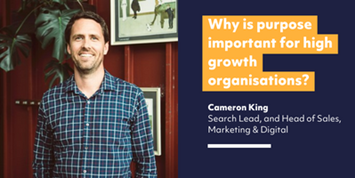Tribe's people, culture & capability lead, Sandy Gibbs, breaks down the interviewing process in a three-part series. First up, the selection process.

Part One - The Selection Process
A poor process application review can mean you miss out on great people.
What are the main issues when reviewing applications?
- Important information is missed
- Candidate data can be misinterpreted
- Biases and stereotypes affect judgement
- One competency overly influences judgement
- Decisions are made too quickly
- Negative information is sought - actively finding a reason to dismiss an application
- Pressure to fill positions affects judgement – picking the best of a bad bunch
- Availability of candidates affects judgement – filling a role now overrides filling a role with a person you may need to wait for
- Personal opinions impact decisions
- The less obvious messages are not recognised – inability to read between the lines of a CV
Planning for the selection and interview process is undervalued and therefore often not done.
Some key planning and preparation tips:
- Have a clear understanding of the reason for the position and the formal position description
- Know clearly the ‘must-have’ technical skills, the hours of work and any other specifics prior to screening and interviewing candidates
- Identify core competencies required for a job type - know what competencies are mandatory and which are negotiable
- Determine your weighting of technical skill versus motivated ability
- Consider the team culture and soft skills required for fit
- Have structured interview questions associated with the above indicators – use the same screening process and interview for everyone
Your preparation prior to an interview and the use of specific guides will ensure that the interview process is reliable and fair:
- Key requirements are assessed consistently across every application
- All applicants are given a fair chance
- At the end of the interview process, you have the information required to assist you with a final decision (it can be easy to forget who was who after multiple interviews)
- You have pre-qualified evidence to share across the business
- Your employment decision is legally defensible





